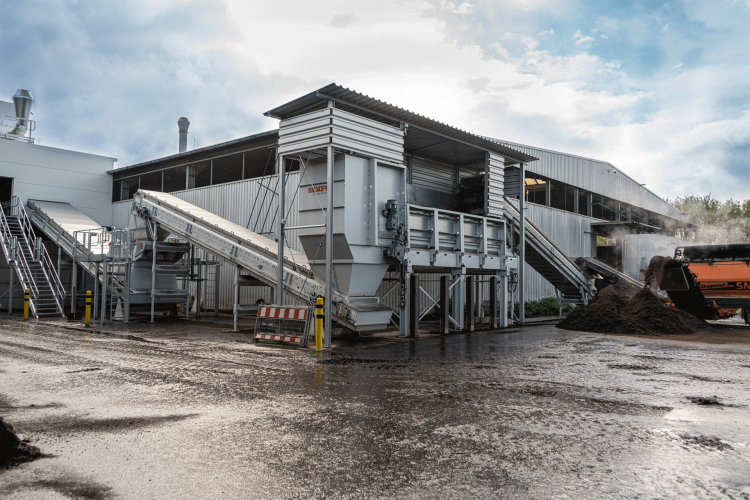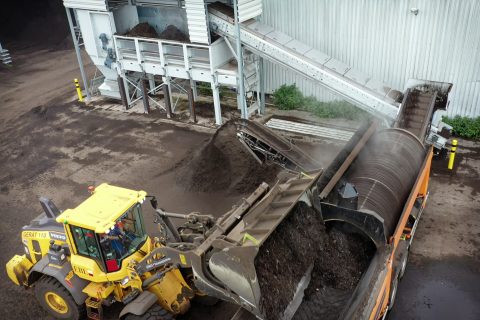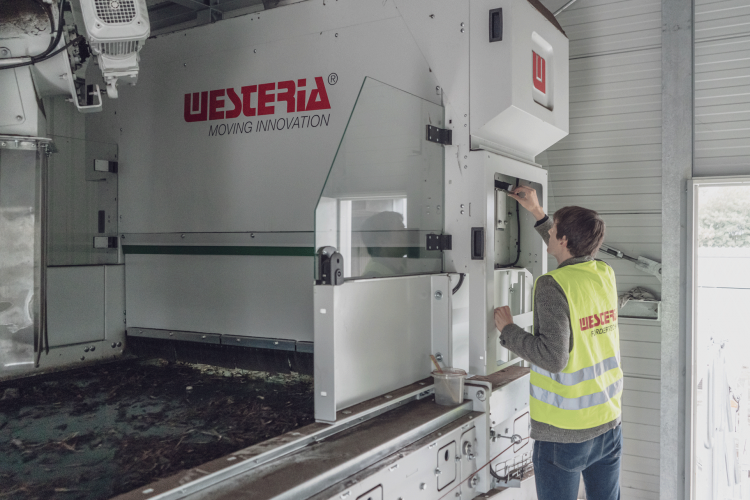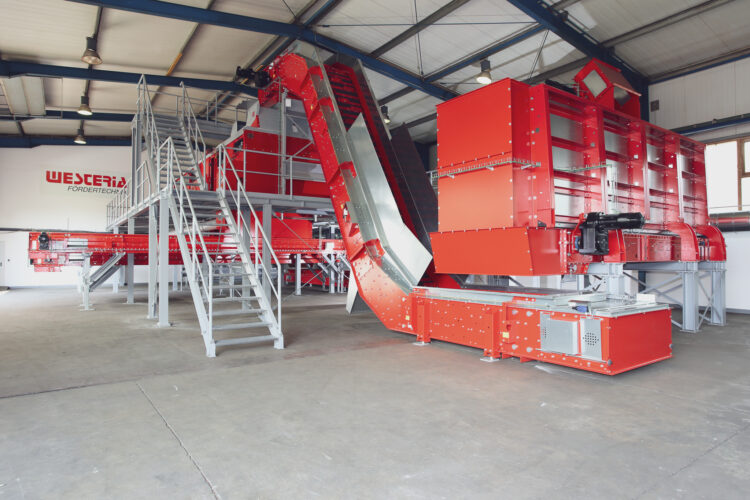
Westeria AirLift keeps
Lübeck’s compost pure
Westeria’s AirLift windsifter
system delivers what it promises
The recipients of compost made from treated biowaste, primarily in the agricultural and landscape gardening industries, must be able to mix sorted compost – without impurities – into the earth. As recently as July 2018, the RAL Quality Assurance introduced an area index, reducing the permitted amount of impurities such as plastic film to 15 cm2/l. The current intention is to reduce this value further, to just 10 cm2/l. This means that complex new technologies are required for treating biowaste to make compost. The city of Lübeck decided upon Westeria’s AirLift windsifter system.
Thanks to this technology, the compost quality is excellent, meeting not just customer expectations, but also the requirements of the German Federal Compost Quality Association. For this reason, Manfred Rehberg, head of the city’s cleansing department, and Roman Gradert, manager of the city’s biomass plant, also rate the new standard of compost extremely positively. “Thanks to our pincer strategy comprising a biowaste campaign, on-site advice provided by our employees and the use of Westeria’s AirLift system, we have meanwhile achieved a compost quality that is considerably below the RAL threshold.”
The first findings from a testing institute contracted by Lübeck’s waste disposal department support the conclusion that an area index of 3–6 cm2/l can be achieved using this system. As well as the positive effects of waste monitoring, which works with trailers using a traffic light system: green – yellow – red, where red means that the organic waste bin will not be collected, mechanical intervention using the AirLift technology also demonstrates the high degree of efficiency hoped for, meaning that plastic film is removed as extensively as possible.

AirLift windsifter with an outstanding performance spectrum.
In Lübeck, the windsifter manufactured by the Münster area-based company, with its accompanying SpeedCon high-speed conveyor belt plus AirWheel module, meets the city’s requirements. Materials such as plastic, which have a similar specific density, must be reliably separated, and Westeria’s windsifter achieves a degree of purity of over 99 %. At a speed of up to 4 m/s, the material is flung over a bend in the conveyor belt as the AirLift positioned above sucks up the lightweight material. The heavier bits of biowaste remain on the sloping belt.
At the same time, the patented belt steering system prevents the belt from moving in the guide, meaning the belts have a longer service life. The fact that the AirLift can be precisely adjusted in terms of air volume and air speed results in extremely efficient ballistic trajectories, guaranteeing that a high yield of impurities can be separated. In Lübeck, this occurs with a conveying capacity of 30 tonnes/hour and an impurity grain size of up to 20 mm. Generally speaking, and depending on the volumes being treated, the technology deployed by Westeria can achieve throughput of up to 320 m³/h, depending on the material.
The lightweight materials sucked up in this way travel through a pipe system to the subsequent treatment stage AirWheel. This uses a drum screen to ensure that fine compost materials are separated off. These are then mixed back into the finished compost as valuable constituents. The special seal system that is fitted prevents material components entering, yet allows fine materials and water to penetrate unimpeded. A combined heat and power station utilises the lightweight materials that have been separated off in this way as substitute fuel.
The system’s ease of maintenance is underscored by the AirJet cleaning system, which feeds in compressed air, and the lever mechanisms and switching elements. These are all accessible from outside, enabling inspections to occur during operation. Likewise the anti-blockage system, which automatically raises the AirLift’s infeed gate in order to prevent blockages caused by buildups of material.
The efficiency of the AirLift system can be tested and proven at the Westeria Technology Center in Ostbevern, Germany at any time, using the customer’s own input material.

The AirLift system proves
its efficiency in Lübeck
“We are delighted by the results achieved by the windsifter technology we have in use. If, with a throughput of for example 250 tonnes of compost, you can see the yield of 250 kg of formable plastics ˃ 2 mm with your own eyes, then the new purity level that our compost achieves, with only 0–10 cm2/l of remaining impurities, can only be emphasised,” explains Roman Gradert with satisfaction. “As a result, we are also in a good position for bringing our compost onto the market in future.”

